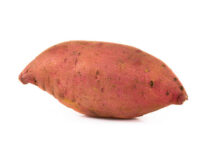Illustrative Image: Prototype Implementation of a Robotic Gamification Model to Boost Climate Change Literacy and Green Entrepreneurship in Sub-Saharan Africa
Image Source & Credit: gamified.uk
Ownership and Usage Policy
A recent study by Oguta et al. (2025) titled “Prototype Implementation of a Robotic Gamification Model for Climate Change Literacy for Green Innovation and Entrepreneurship with Social Robot Nao” published in the Journal of Computing Sciences Research reveals that the Robotic Gamification Model for Climate Change Literacy (RGM-CCL4GIE) significantly improved learner engagement and motivation in climate change education within Sub-Saharan Africa (SSA).
“
Combining robotics and gamification significantly improves learner engagement and motivation in climate change education across Sub-Saharan Africa.
– Oguta, et al. 2025
This study presents the development of the Robotic Gamification Model for Climate Change Literacy for Green Innovation and Entrepreneurship (RGM-CCL4GIE), designed to enhance climate change education and promote green entrepreneurship across Sub-Saharan Africa (SSA). The model leverages the power of robotics and gamification to foster sustained learner engagement and motivation—addressing the critical shortcomings of traditional educational approaches that often fail to maintain interest over time.
How the Study was Conducted
The study employed a Design Science Methodology (DSM) approach to develop, validate, and empirically test the Robotic Gamification Model for Climate Change Literacy for Green Innovation and Entrepreneurship (RGM-CCL4GIE). Researchers designed the gamified training model grounded in three theoretical frameworks to maximize motivation, engagement, and learning reinforcement: Self-Determination Theory to foster intrinsic motivation, Operant Conditioning Theory to reinforce learning behaviors, Mechanics-Dynamics-Aesthetics (MDA) Framework to enhance engagement and interaction. The prototype was implemented on the Moodle e-learning platform and integrated with the social robot Nao. Gamification elements such as leaderboards, badges, random rewards, and interactive robotic features were embedded to create an immersive learning experience.
The system architecture comprised modular components supporting desktop learning and robotic interaction. To enable gamification, Moodle plugins like Level Up and Block Game were installed, facilitating interactive quizzes and reward mechanisms. The Nao robot was programmed via Choregraphe software to deliver personalized feedback, animations, and interactive dialogues, further enriching learner engagement. The prototype was tested with students undergoing climate change literacy training, who interacted with both the Moodle-based gamified platform and the Nao robot-enhanced sessions. Data were collected through surveys based on the Technology Acceptance Model (TAM), measuring learner motivation, engagement, and overall model effectiveness.
What the Authors Found
The authors found that the Robotic Gamification Model for Climate Change Literacy (RGM-CCL4GIE) significantly improved learner engagement and motivation in climate change education within Sub-Saharan Africa (SSA).
Why is this important
Overcoming Engagement Barriers: Traditional educational methods often struggle to keep learners engaged over time, especially in complex fields like climate change literacy. This study introduces gamification and robotics to make learning more interactive, engaging, and sustained.
Advancing Climate Change Education: By integrating self-determination theory, operant conditioning, and the MDA framework, the model promotes long-term learning retention and motivation. It ensures that students remain interested and actively participate in climate change education.
Supporting Green Innovation & Entrepreneurship: Educating students on climate change isn’t just about awareness—it’s about empowering them to create solutions. The model helps learners understand environmental issues while encouraging them to develop green entrepreneurship initiatives.
Leveraging Technology for Learning: The study showcases how robots like Nao can enhance student interaction, provide personalized feedback, and create immersive learning experiences. This hybrid approach to education (gamification + robotics) could set a new standard for teaching dynamic subjects.
Real-World Impact: By improving climate literacy, the study helps communities and policymakers in SSA make informed decisions about sustainability and green innovation. It contributes to broader climate change awareness and sustainable development goals.
What the Authors Recommended
- To maximize learner engagement, it is crucial to maintain a balanced integration of the Nao robot’s interactive features alongside gamification components. Over-reliance on either robotics or gamification alone may diminish the overall effectiveness of the learning experience.
- The model should be designed for adaptability across diverse educational settings, allowing scalable implementation in various institutions. Special attention must be given to accessibility, particularly in Sub-Saharan Africa, where technological infrastructure can differ widely.
- Ongoing collection and analysis of learner feedback through surveys and engagement metrics are essential. This continuous evaluation will help refine the model, ensuring it remains effective and responsive to learner needs.
- Further research is encouraged to explore additional interactive technologies beyond the Nao robot and to investigate the long-term impacts of combining gamification and robotics on learner engagement and knowledge retention. Scaling the model should also be a priority for broader application.
- The model offers a practical solution to enhance climate change literacy and green entrepreneurship education. Its widespread adoption can contribute significantly to raising climate awareness and advancing sustainable development goals across Sub-Saharan Africa.
In conclusion, the Robotic Gamification Model for Climate Change Literacy (RGM-CCL4GIE) represents a groundbreaking approach to education in Sub-Saharan Africa by combining robotics and gamification to significantly enhance learner engagement and motivation. This innovative model not only addresses critical challenges in traditional climate change education but also empowers students to become active participants in green innovation and entrepreneurship. By leveraging cutting-edge technology and well-established motivational theories, the study offers a scalable and adaptable framework with the potential to transform climate literacy, support sustainable development goals, and foster a more environmentally conscious generation across the region.
















 The African Research (AR) Index is a comprehensive scholarly directory and database focused explicitly on journal publishers that publish and disseminate African research.
The African Research (AR) Index is a comprehensive scholarly directory and database focused explicitly on journal publishers that publish and disseminate African research.

